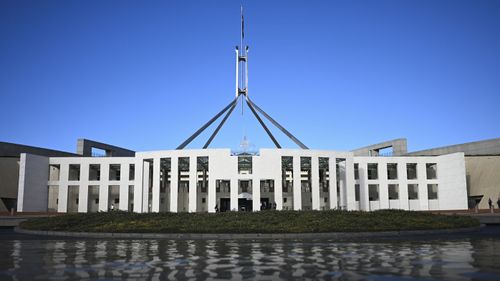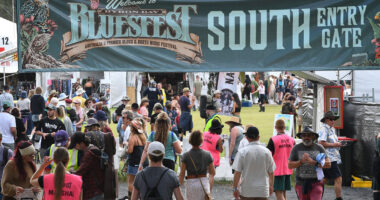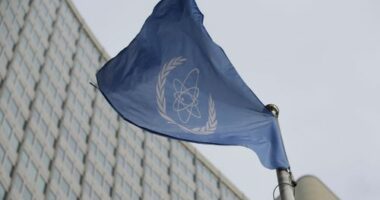Share this @internewscast.com
A senior Department of Home Affairs official lied to coworkers to help her sister and her sister’s fiancé get a government job, the National Anti-Corruption Commission has found.
Operation Kingscliff was established in January 2024 after a staff member raised concerns that Joanne Simeson, a pseudonym used for the senior executive service officer, had engaged in corrupt conduct.
The commission handed down its findings today, revealing that Joanne had helped promote her sister’s fiancé, named under the pseudonym Mark Elbert, as a candidate for a job at Home Affairs, praised him to her coworkers, created the job requisition — which she approved herself — and forged a witness signature on paperwork to quicken the onboarding process.

According to the commission’s report, Melissa was the Sports Coordinator of the AIS European Training Centre in Italy from April 2022 to December 2024.
Elbert, who moved with her to Italy, was on leave from the Department of Climate Change and Energy Efficiency.
In December 2022, Joanne texted Melissa about helping Elbert get a role within the Home Affairs department.
After that did not happen, she tried to help him again for another role in March 2023.
Joanne exchanged a number of text messages with Melissa in which she instructed her throughout the recruitment process and created the lie that Elbert is a “friend of a friend”.
“You are not my sister. He cannot say our surname. Or where you work,” she said in one of the texts.
Internal emails revealed that her coworkers had questioned Joanne’s interest in Elbert’s application.
The commission’s report said that their connections to one another were finally uncovered at the department’s Christmas Party in December 2023.
National Anti-Corruption Commissioner Paul Brereton said the case illustrated the systemic risks in public service recruitment.
“It reinforces the need for strong corruption prevention measures, including mandatory conflict of interest disclosures in all recruitment processes, and prevention of improper disclosures of official information,” he said.
Brereton handed down three recommendations to reduce the risk of similar corrupt behaviour.
A Commonwealth Integrity Survey in 2024 found that nepotism and cronyism were some of the most frequently witnessed corrupt behaviours within the public service sector.
“Since the commission was established, we’ve received many referrals about recruitment and promotion in the Australian Public Service,” Brereton said.













